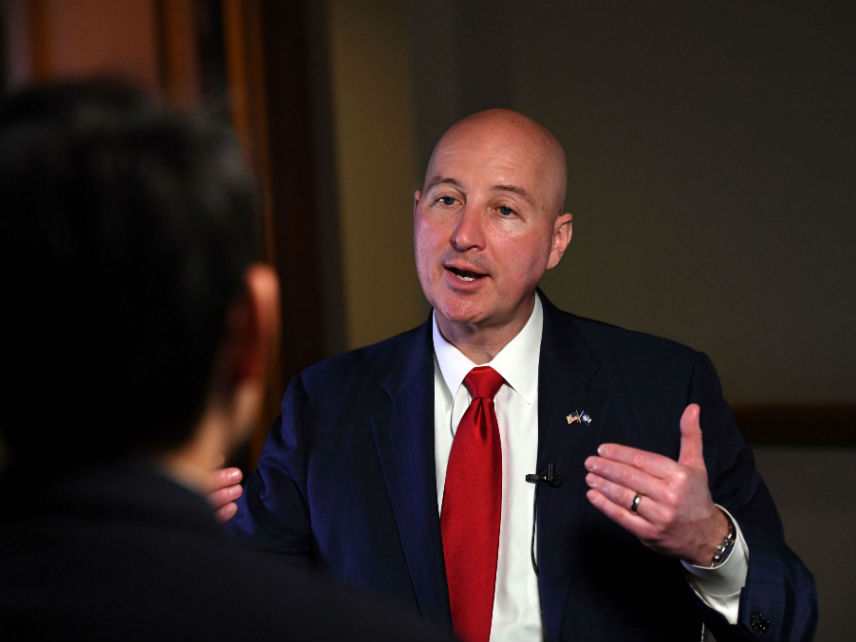ACLU Says Nebraska May Have Illegally Imported Execution Drugs
The ACLU asks the DEA to investigate whether the state lied on its applications to get fentanyl for upcoming executions.

The American Civil Liberties Union (ACLU) today accused the Nebraska state prison system of violating federal drug laws to obtain lethal injection drugs to use in upcoming executions.
The Nebraska branch of the ACLU says the Nebraska State Penitentiary may have illegally imported and stored fentanyl that it intends to use to execute two inmates. In a letter to the Drug Enforcement Administration (DEA), released today, the group asks the agency to investigate the alleged misdeeds—and to immediately suspend the DEA registrations allowing Nebraska to carry out the executions.
The letter says the penitentiary may have repeatedly misled federal authorities by importing and storing fentanyl under DEA registrations issued to an inmate clinic located at the same prison as the state's death row. The registrations allow medical practitioners at the clinic to administer controlled substances to inmates.
"Prisoners who are to be executed by lethal injection are not being diagnosed or treated, nor are they being provided any other form of medical care," ACLU of Nebraska Legal Director Amy Miller wrote in the letter.
The civil rights group also argues that Nebraska may have violated federal law by importing fentanyl from overseas without a proper DEA license. Fentanyl is a Schedule 2 narcotic under the Controlled Substances Act, and the penitentiary's license only allows it to import Schedule 3 and 4 drugs, the ACLU says.
Nebraska is attempting to resume capital punishment in the state after a 21-year hiatus, but it has struggled to obtain execution drugs, a problem facing almost every state that still practices the death penalty.
Nebraska Gov. Pete Ricketts told reporters at a press conference this morning that the ACLU "is fabricating charges in a desperate attempt to foil the will of the people of Nebraska." A Nebraska Department of Corrections spokesperson claimed to the Omaha World-Herald that the department legally obtained the drugs and that the ACLU's letter "contains inflammatory language clearly intended to discredit the department."
With the state facing scrutiny from media and advocacy organizations, the state government began an aggressive campaign to keep details about its death penalty protocols secret. In January the legislature passed new laws tightening what information could be released.
The World-Herald and several other media organizations are currently suing the state for refusing to disclose the source of its execution drugs, information that it used to provide to news outlets.
If the allegations made by the ACLU are true, it would not be the first time that Nebraska has skirted the law while trying to get execution drugs.
A 2015 BuzzFeed investigation revealed that Nebraska, along with at least three other states, paid Harris Pharma, a mysterious company in India run by a man with no pharmaceutical background, to ship sodium thiopental to them, despite a Food and Drug Administration ban on importing the drug.
Nebraska ordered $54,000 worth of the stuff from Harris—enough to perform 300 executions—but the feds intercepted the shipment, leaving Nebraska taxpayers on the hook for the bill.
The DEA did not immediately respond to a request for comment.


Show Comments (198)